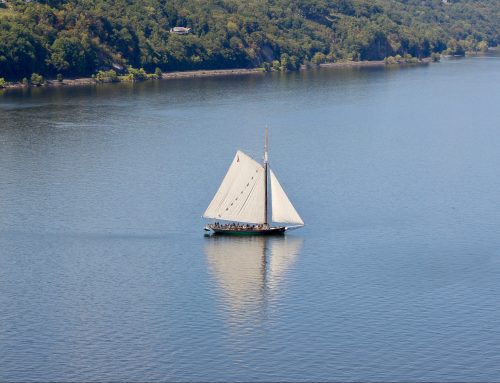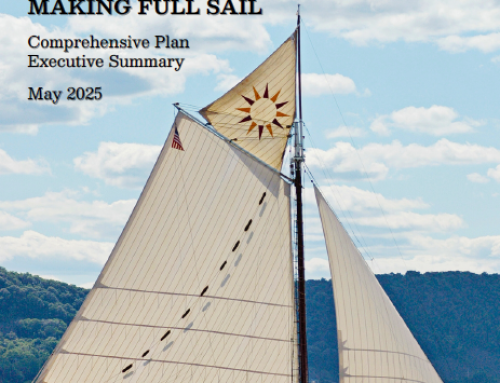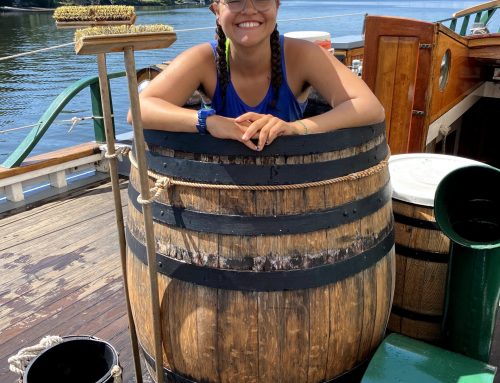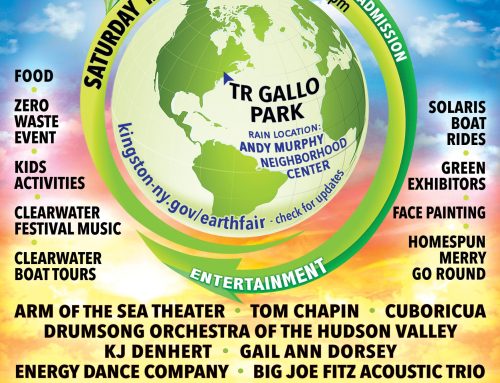
A photo of the Hudson River Sloop Clearwater’s foredeck while sailing on a clear, sunny day on the Hudson River near Yonkers.
Photo by Alon Koppel
Hudson River Sloop Clearwater celebrates the House of Representatives passing the New York-New Jersey Watershed Protection Act (H.R. 4677), which is proposed to provide $250 million in funding over the next five years to protect and restore the watersheds that flow into New York-New Jersey Harbor — including those of the Hudson, Mohawk, Raritan, Passaic, Hackensack, and Bronx rivers.
Take Action: While this bill has passed the House, it must still pass the Senate and be signed by the President before it can become law. Please contact your senator (their contact info can be found here) and tell them you support the New York-New Jersey Watershed Protection Act.
About the NY-NJ Watershed Protection Act
The NY-NJ Watershed Protection Act will:
- Authorize the U.S. Fish and Wildlife Service (USFWS) to establish a program to coordinate restoration and award grants to help fund approved plans and restoration projects in local communities.
- Provide federal matching dollars for state environmental funding like the Environmental Protection Fund and Bond Act.
- Ensure that restoration efforts utilize science-based principles to protect fish and wildlife habitats, improve water quality, increase public access to the estuary, mitigate flood risks, and develop public outreach and educational activities.
- Authorize $50 million annually through fiscal year 2026 to accomplish these goals.
The passing of this legislation marks a critical turning point in the fight against climate change and for environmental justice by investing in on-the-ground projects that will improve accessibility, habitat, climate resiliency, and economic opportunity for the 15 million Americans living near them. Thank you to Congressman Paul Tonko, from New York’s Capital Region for his dedicated sponsorship and to the collective of Hudson Valley environmental groups for spearheading this important piece of legislation to protect our waterways for generations to come.
Despite being the nation’s most populated watershed, the New York-New Jersey watershed has not received the significant federal funding provided to the Chesapeake Bay, the Long Island Sound and others. For many years, the Hudson River has been polluted from a variety of sources: 650 tons of PCBs discharged by General Electric, thermal pollution and radioactive isotopes from Indian Point Nuclear Plant, PFOAs (“forever chemicals”) from Stewart Air National Guard base and other emerging contaminants, and untreated waste from the various town and city sewage treatment plants which line the banks of the Hudson and have resulted in numerous health advisories and placed a burden on the communities which rely on the river for economic, recreational, or other services. In addition, seven communities take their drinking water from the Hudson River.
Funding from this bill would address many of these issues, opening opportunities for financing local restoration projects, bolstering shorelines to increase climate resilience, protecting our highly valuable wetlands, improving the quality and safety of our water, ensuring environmental justice for priority communities, and facilitating access to our majestic river.
As the climate crisis looms over us, it is vital we take action now to protect our communities from what will come. While this bill has passed the House, it must still pass the Senate and be signed by the President before it can become law. Please contact your senator (their contact info can be found here) and tell them you support the New York-New Jersey Watershed Protection Act. At Clearwater, we will be working diligently to build upon the momentum of support this bill has received, helping to ensure that funding will be put to the most effective and beneficial uses possible.
We deeply appreciate your continued support. Thank you for all you do to make our work possible and effective.





